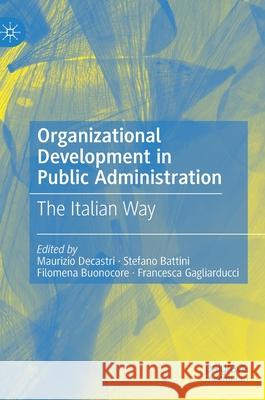Organizational Development in Public Administration: The Italian Way » książka
topmenu
Organizational Development in Public Administration: The Italian Way
ISBN-13: 9783030437985 / Angielski / Twarda / 2020 / 237 str.
Organizational Development in Public Administration: The Italian Way
ISBN-13: 9783030437985 / Angielski / Twarda / 2020 / 237 str.
cena 403,47
(netto: 384,26 VAT: 5%)
Najniższa cena z 30 dni: 385,52
(netto: 384,26 VAT: 5%)
Najniższa cena z 30 dni: 385,52
Termin realizacji zamówienia:
ok. 16-18 dni roboczych.
ok. 16-18 dni roboczych.
Darmowa dostawa!
Kategorie BISAC:
Wydawca:
Palgrave MacMillan
Język:
Angielski
ISBN-13:
9783030437985
Rok wydania:
2020
Wydanie:
2021
Ilość stron:
237
Waga:
0.50 kg
Wymiary:
21.01 x 14.81 x 1.91
Oprawa:
Twarda
Wolumenów:
01
Dodatkowe informacje:
Wydanie ilustrowane











